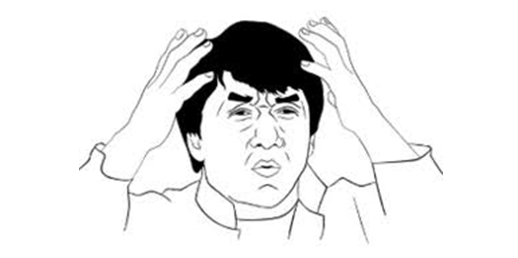
There is a fear that causes Christian legs to tremble, a fear well-exploited by the New Atheism, and — all things considered — a very stupid fear — that of the unmiraculous.
The Christian runs to the atheist, silver cross sailing in the wind, filled with joy, saying “I felt the presence of God!” The atheist looks up from his Macbook and says something along the lines of, “Religious experience is just the result of decreased activity in your right parietal lobe.” And he’d hardly be alone in the effort to reduce religious experience to the alteration of brain activity. Evolutionary biologist Lionel Tiger called religion “a secretion of the brain.”
To which the Christian has three available responses. He may go home, cry, and spend the rest of his life reading Dawkins’ tortured prose, or he may do the fundamentalist dance. This, of course, would involve putting his pinkies in his ears and his thumbs up his nose, shutting his eyes and spinning in circles, singing “This is just a test of my faith, a test my faith” to the tune of Chris Tomlin’s Everlasting God.
Or he might reason as follows:
The fact that religious experience manifests itself in an entirely unmiraculous way — in the physical activity of the brain — does not call into question the reality of religious experience. In fact, it strengthens the possibility that religious experience is a response to a reality, not delusion. Why? Because effects require a cause. Your amygdala, for instance, that part of the brain that controls fear and anxiety, does not randomly ‘turn off’. It turns off in response to the chemical oxytocin released during orgasm. Orgasm is caused — usually — by having sex, which is a real, tangible, human experience. The man who would say, “the pleasure of sex is the result of decreased amygdala activity, and therefore you aren’t really having sex” is on the exact same plane of logic as the atheist who says, “the feeling of religious experience is just the result of decreased activity in your right parietal lobe — therefore you’re not really having a religious experience.”

If there is an effect — the decreased activity in the right parietal lobe — it stands to reason that there must be a cause. We could say “it’s just random,” but in doing this we would not only deny the fact that the majority of religious experience is habitual, not random, but also the functionality of the human mind: If the functions of my parietal lobes are random, and humans have religious experiences uncaused by anything rooted in reality, then it may be equally true that the functions of the left side of my brain — that part responsible for the logic that leads us to make statements such as “there is no God” — are entirely random, with no bearing on reality, and may be discounted as such. We could say it’s all coincidental stimulation, but we dismantled that.
The unmiraculous facts of religious experience go much further in testifying to the existence of a God than if they were purely undetectable miracles. For as it stands, there exists parts of our brain that seems to respond to a spiritual world, parts that respond to prayer, to adoration, etc. Either there is a God and our brain is doing its job, or there is no God, and we have an inexplicably misleading part of our brain that distorts reality and makes us stupid with no conceivable benefit. (Note that if the atheist were to belligerently affirm the latter proposition, saying, “Well, it simply must be the case,” “evolution isn’t perfect,” or something of the sort, the Christian is obliged to answer, “Then how can we trust our brains at all?”)
The Christian, erroneously seeing himself as a soul trapped within a body, thinks that for a spiritual event to interact with and alter the body somehow devalues it, and is thus frightened of any scientific analysis of religious experience. But we are not a soul rattling inside a machine. We are human. What changes our soul should invade our body — our brain, our lungs, our guts and our blood, for when God interacts with us he does not do so as a magician, but as a person, meeting us in the entirety of our personhood, which includes the body.











